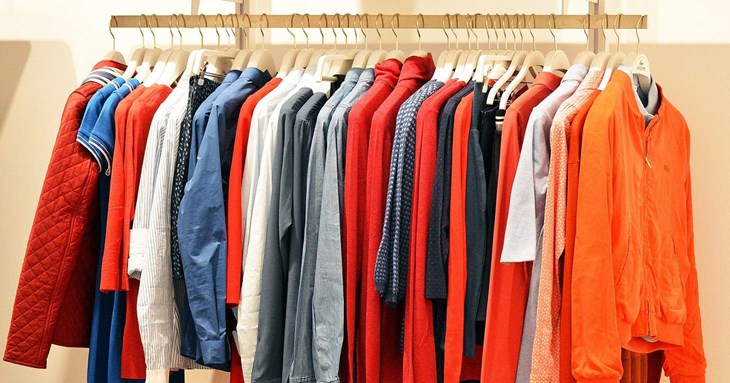Consumers called on to cut carbon footprint by reducing clothing purchases
Published: 12 February 2021

Climate conscious Devon residents are being urged to reduce their carbon footprint by cutting down on the clothes they buy and instead get the most out of what they have.
And if residents do have to buy new clothes, they are encouraged to buy better-quality, ethically sourced items, preferably from a local retailer.
The ‘fast fashion’ industry is the second highest carbon-creating industry in the world* and emissions from textile production outweigh the total carbon footprint of international flights and shipping combined. **
Producing the clothes we wear creates 1.2 billion tonnes of CO2e each year, accounting for over 10 per cent of all global carbon emissions.
The production of a single t-shirt creates the same amount of emissions as driving from Exeter to Plymouth, and in Devon around 6,500 tonnes of textiles*** are still ending up in waste bins each year.
If re-used instead of binned, this would save 33,800 tonnes of CO2.
Vice Chair of Devon Authorities Strategic Waste Committee, Councillor David Harvey, said: “Given that £30 billion of unworn clothing is sitting in UK wardrobes, do we really need to be buying even more?
“The highest contributor to the carbon footprint of clothing is the production and processing of fibre, whether natural or synthetic. This can be reduced by making the most of the clothes we already have, buying second-hand items online or when charity shops are open, and swapping with friends and family.
"If we do need to buy brand new new clothes, buying good quality, long lasting garments from local retailers made from sustainably, and ethically sourced fibres will help to reduce our carbon footprints. If residents avoided buying new clothes for a whole year, it would save a staggering 132,860 tonnes of CO2.”
For more information about reducing and reusing clothing, please follow Recycle Devon on Facebook, Twitter and Instagram or visit www.recycledevon.org.
